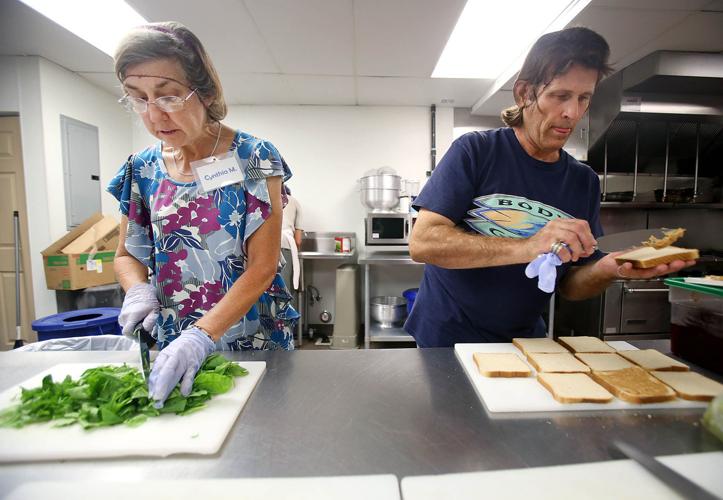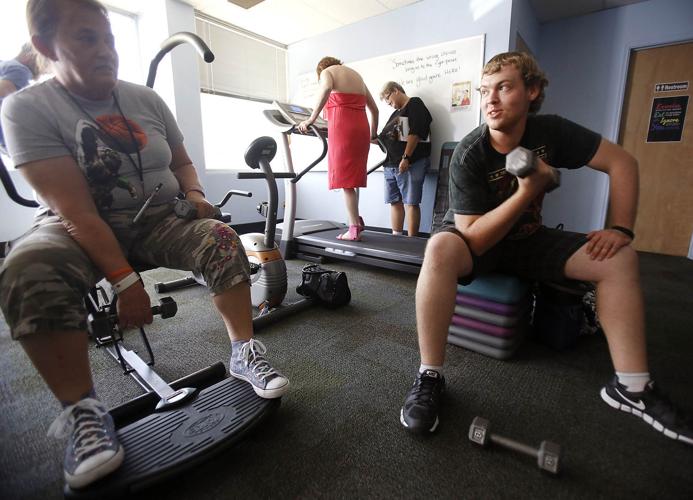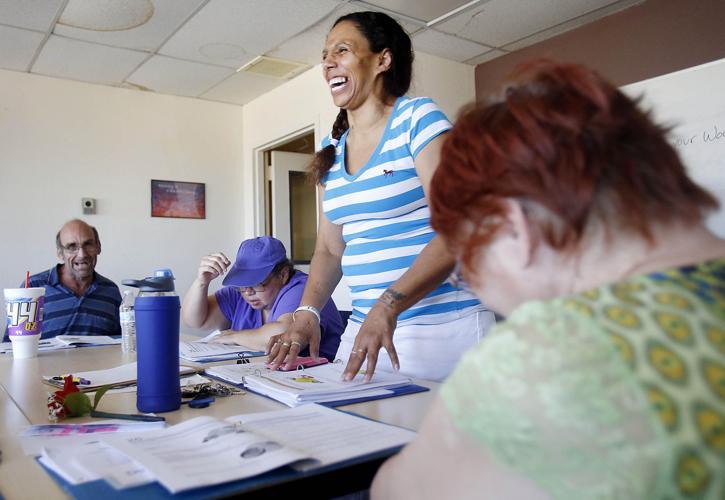Tucson-based Camp Wellness seeks to better the odds of Arizonans with serious mental illness, who on average die 33 years earlier than the general population.
Among other things, people with serious mental illness are more likely to suffer from chronic medical conditions, including obesity, heart disease and diabetes.
Often those conditions come about because poor mental health can lead people to stop taking care of themselves, and to socially withdraw.
Camp Wellness aims to create a bridge from despondency to physical and emotional health. The program in October will resume accepting Pima County residents with serious mental illness who are enrolled in the public health system.
“When I came to Camp Wellness I wasn’t suicidal, but I think I had given up on myself,” said Rita Romero, a 34-year-old Tucson resident and Camp Wellness graduate.
“The stigma I had within was really keeping me from so many things … from Day One I regained a structured routine. I learned a love of group exercise I never knew I had.”
Romero went from Camp Wellness to an internship and now has a job. She told her story to more than 50 people, including several community leaders, this month during a Camp Wellness celebration.
The nine-week program for up to 60 people per session covers an array of subjects, including nutrition, fitness, stress management, relaxation, hygiene and basic anatomy.
The University of Arizona Department of Family and Community Medicine started Camp Wellness in 2009 in direct response to the stark difference in life expectancy between people with serious mental illness and the general population.
The Community Partnership of Southern Arizona, which manages the public mental health system in Pima County, has not been funding the program since last fall.
“There were some pretty dark days. People thought Camp Wellness was going to go down the tubes,” said Clarke Romans, executive director of the National Alliance for Mental Illness in Southern Arizona.
But Cenpatico Arizona last December won a three-year contract to administer behavioral health-care services throughout Southern Arizona, including Pima County, beginning Oct. 1.
Cenpatico has decided to resume funding Camp Wellness for Pima County residents, which was the reason for this month’s celebration.
“For many people it’s a real turning point in their life,” Romans said.
“They acquire skills that they either never had or that they have lost due to their illness. I think a vast majority of people leave that program with higher self-esteem, better coping skills and better living skills.”
The program is held in midtown Tucson in the UA RISE (Recovery through Integration, Support and Empowerment) Health and Wellness Center, 1030 N. Alvernon Way.
“From my perspective, it makes miracles,” said 64-year-old Vonnie Johnson, another Tucson program graduate. “I was isolated and suffering from depression and PTSD.”
These days Johnson is always on the move. Among other things, she’s a certified recovery coach, and does peer mentoring.
“I would have never imagined any of this for me,” she said.
In 2012, U.S. Substance Abuse and Mental Health Services Administration director Pamela Hyde visited Camp Wellness and later that year praised its comprehensive approach at the annual conference of the National Council for Community Behavioral Healthcare.
“This program has really been successful since the inception. They plan menus, cook their own food. The biggest thing is the self-esteem elevation,” Romans said. “Through things like this we are ever so slowly changing the face of mental illness. They are proud to be there, not ashamed.”






